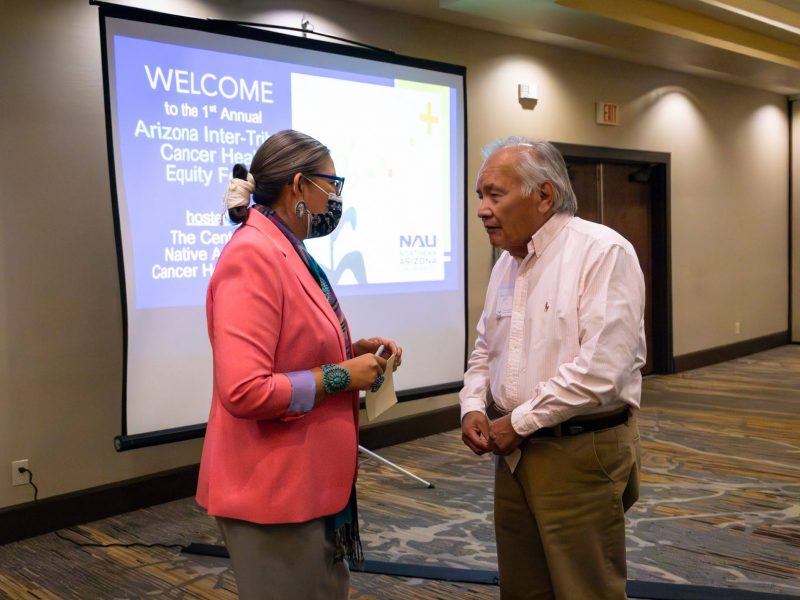NAU advances cancer health equity in native communities with inter-tribal forum
The first Arizona Inter-Tribal Cancer Health Equity Forum brings experts and tribal advocates together in Flagstaff
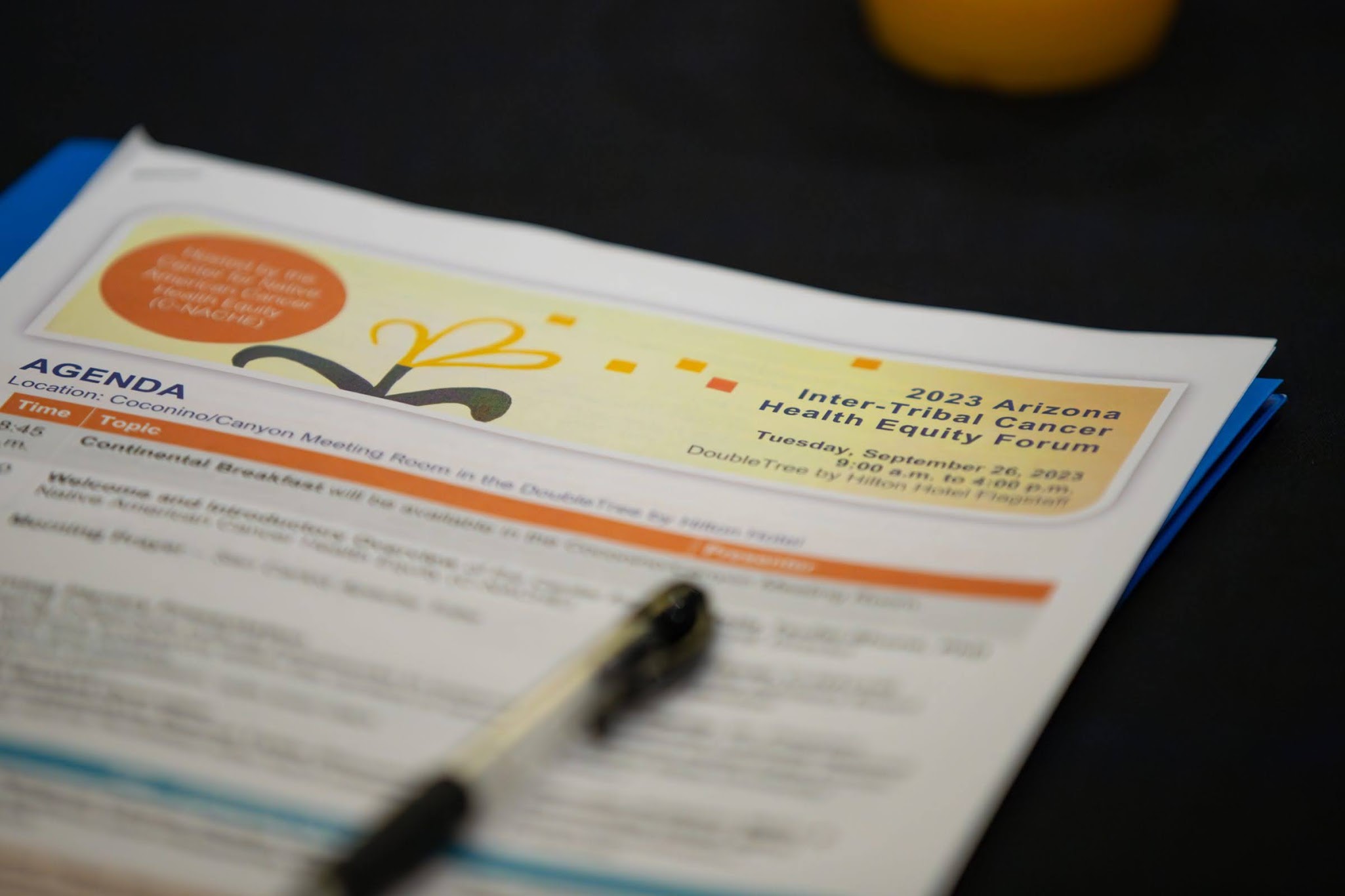
In a milestone event, Northern Arizona University’s Center for Native American Cancer Health Equity (C-NACHE) convened their first-ever Arizona Inter-Tribal Cancer Health Equity Forum (AICHEF) on September 26, in Flagstaff. The forum hosted 40 attendees from various tribal nations and tribal-serving organizations across Arizona and built the platform for diverse voices to flow freely with the infusion of cancer health data and policy updates.
“This event wasn’t just about statistics; it was about creating unity, sparking meaningful discourse, and building pathways to advance cancer health equity in Native communities.”
Conversations
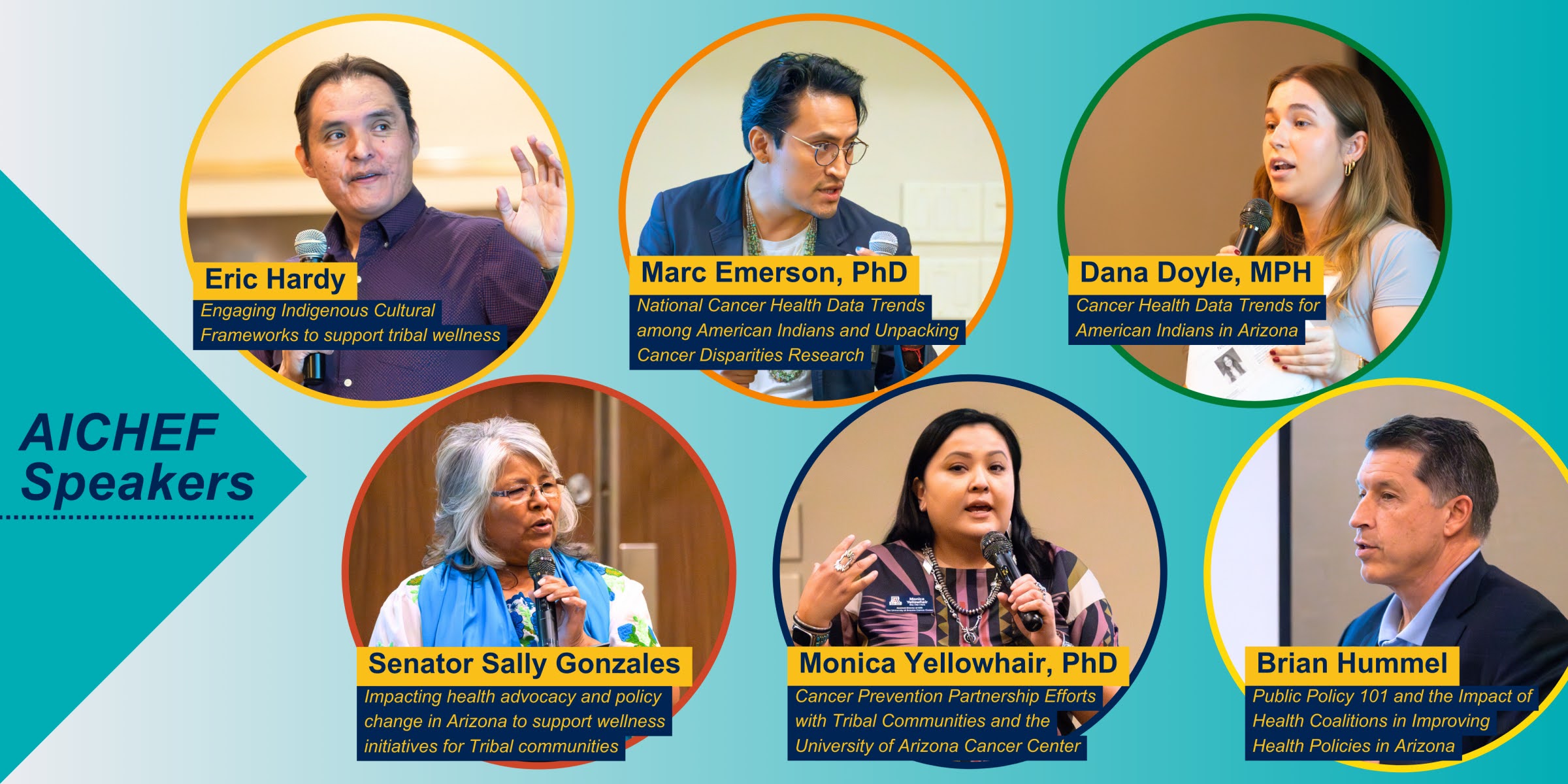
The day’s activities revolved around a series of essential topics, guiding the conversation on the challenges and opportunities in the fight to reduce the cancer burden in Arizona tribal communities. Organizers felt it crucial to center an Indigenous health lens from the get-go. Thus, the day began with a presentation that situated health (balance) and disease (imbalance) from a Native cultural and historical perspective. Attendees were encouraged to engage both Western and Indigenous lenses in the day’s discussions on cancer. More presentations followed on national and state-level cancer health data trends, illuminating cancer health disparities facing Native communities.
World Café highlight
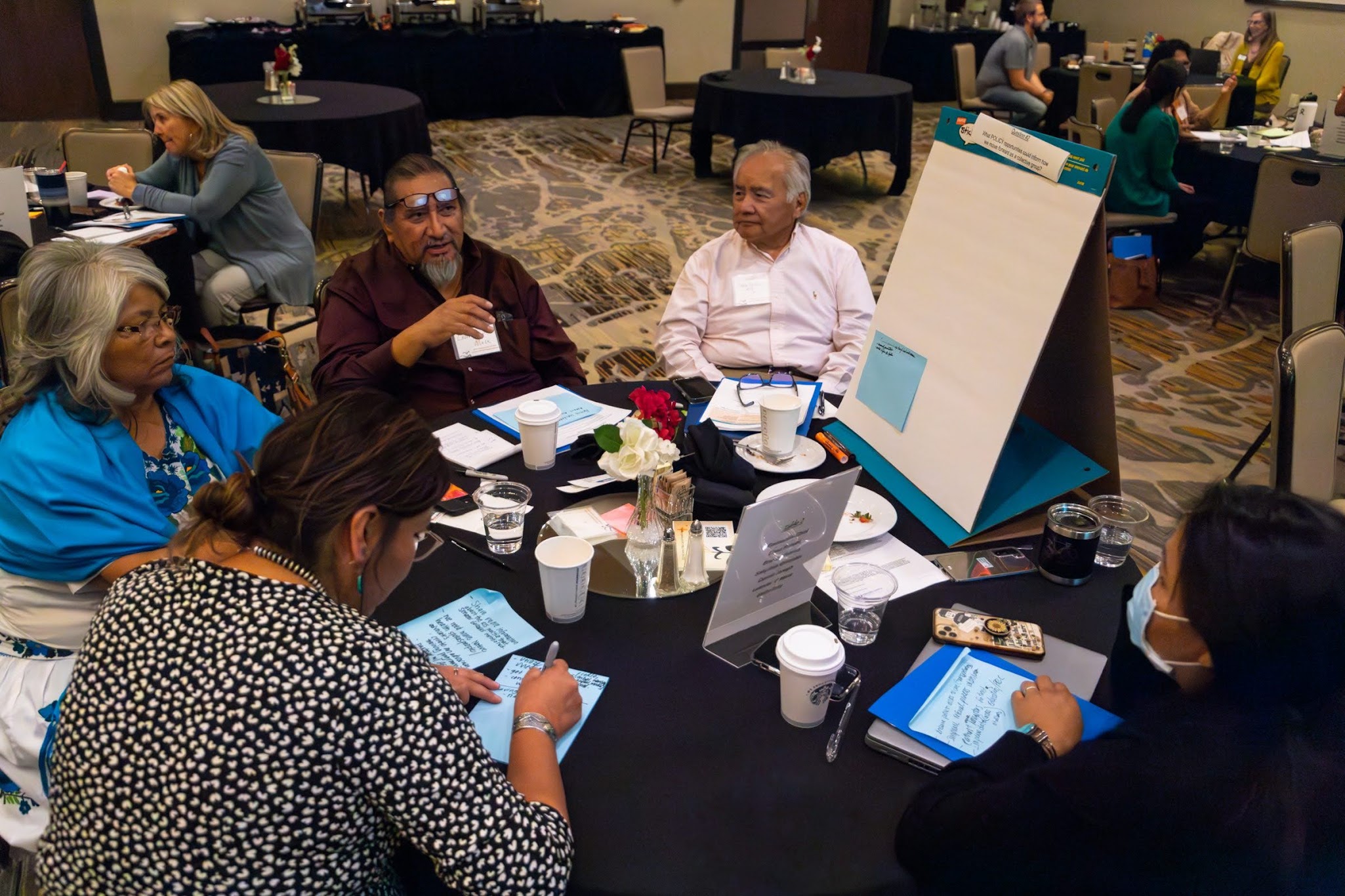
A notable highlight was the “World Café” discussion activity in which attendees were asked to reflect in groups on opportunities they saw for policy action to increase access to cancer prevention and care resources in tribal communities. Attendees then roamed around to other group tables to learn from and respond to ideas that other groups posited. Along with generating ideas, C-NACHE aims to develop actionable change stemming from the conversations that took place.
Impacts
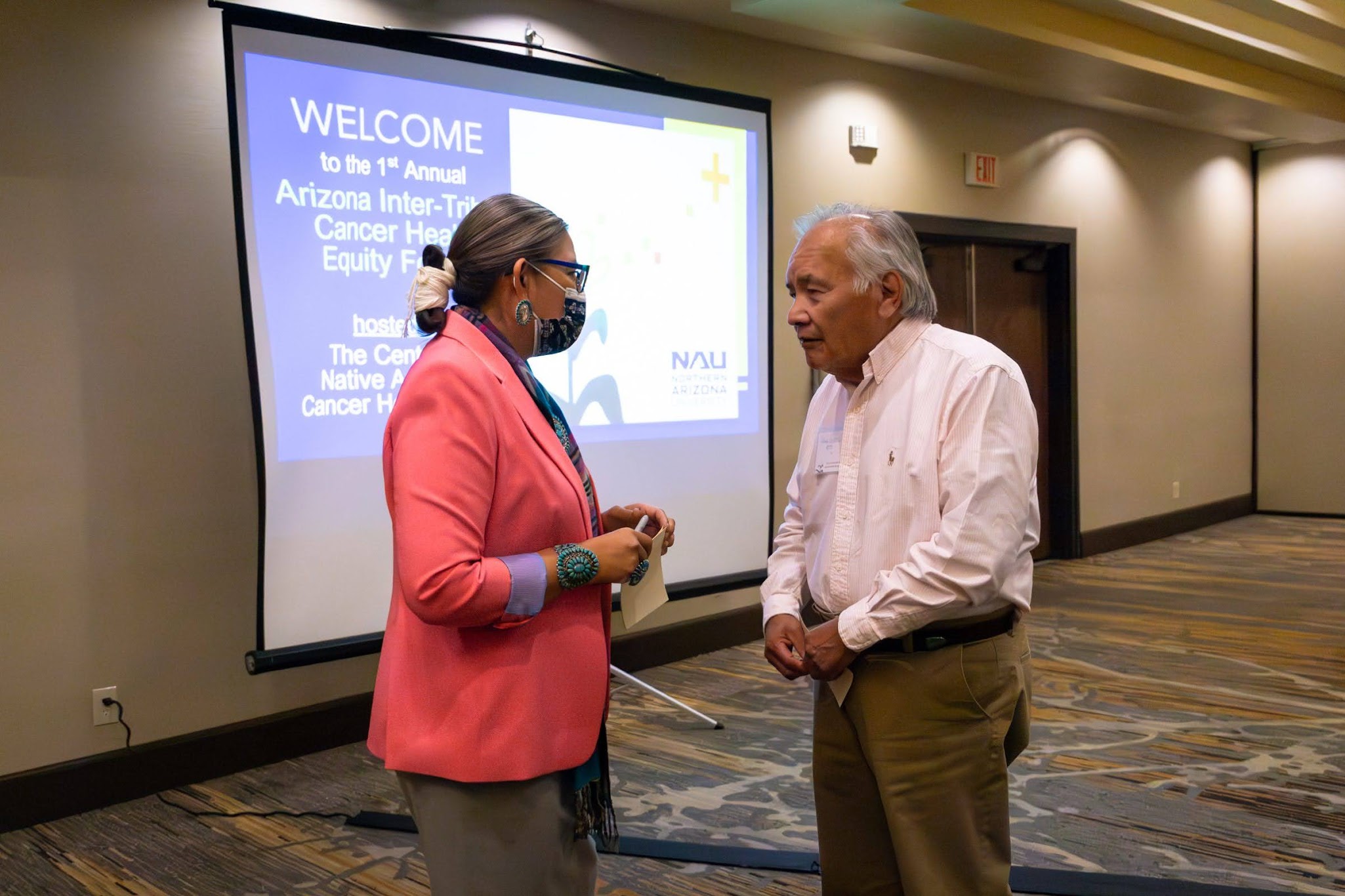
As the energy continues to buzz from this groundbreaking forum, the C-NACHE team hopes forum attendees will carry forward the connections, perspectives, and motivation they fostered, with their communities. With the collective discussions and networks formed during the AICHEF, C-NACHE is more equipped than ever to drive the advancement of cancer health equity for Native Americans. This was more than just a forum; it was a catalyst for unity, progress, and health equity.
C-NACHE is funded by the American Cancer Society, award number CHERC-MSI-22-183-01-CHERC-MSI.
